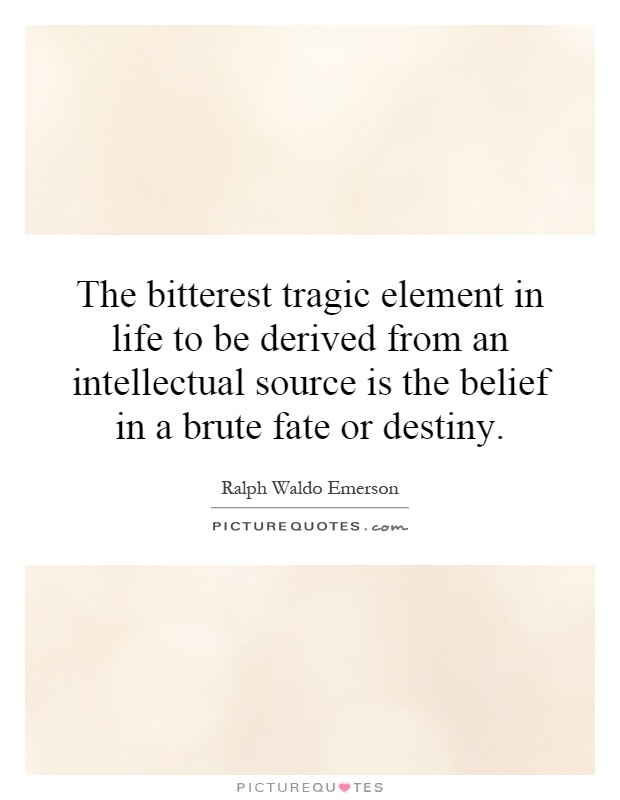The bitterest tragic element in life to be derived from an intellectual source is the belief in a brute fate or destiny

The bitterest tragic element in life to be derived from an intellectual source is the belief in a brute fate or destiny
Ralph Waldo Emerson, a prominent American essayist, lecturer, and poet, was known for his transcendentalist philosophy that emphasized the importance of individualism, self-reliance, and the interconnectedness of all things in nature. In his works, Emerson often explored the concept of fate or destiny and its impact on human life.Emerson believed that individuals have the power to shape their own destinies through their thoughts, actions, and beliefs. He rejected the idea of a predetermined fate or destiny that controls the course of one's life, arguing that each person has the ability to create their own path and determine their own future. In his essay "Self-Reliance," Emerson famously wrote, "Trust thyself: every heart vibrates to that iron string."
For Emerson, the belief in a brute fate or destiny was a tragic element in life because it robbed individuals of their agency and autonomy. It led people to resign themselves to their circumstances and accept their lot in life without striving for personal growth or self-improvement. Emerson saw this fatalistic mindset as a form of intellectual laziness that stifled creativity, innovation, and progress.
Emerson believed that true fulfillment and happiness could only be achieved through self-discovery, self-expression, and self-reliance. He encouraged individuals to trust their own instincts, follow their own passions, and forge their own paths in life. By embracing their inner strength and potential, people could overcome any obstacles or challenges that fate might throw their way.












 Friendship Quotes
Friendship Quotes Love Quotes
Love Quotes Life Quotes
Life Quotes Funny Quotes
Funny Quotes Motivational Quotes
Motivational Quotes Inspirational Quotes
Inspirational Quotes